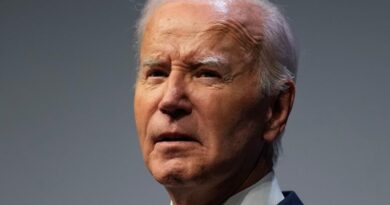NATO must act as Putin threatens in response to Biden’s weakness.

There is a sense of urgency at this week’s NATO summit in Washington as the Western world may be facing its most critical situation since the Cuban Missile Crisis of 1962.
The signs of a looming threat are evident, and NATO leaders must quickly come up with a strong and decisive response.
Recently, Vladimir Putin announced that Russia would begin producing and deploying nuclear-capable short- and intermediate-range missiles, which have been banned since 1987.
Though it is likely that Russia has been secretly producing these weapons for some time, the public confirmation by Putin is troubling, especially given the timing after the presidential debate between President Biden and Donald Trump.
It is clear that Russia’s major offensive in Kharkiv, Ukraine, has hit a roadblock, with renewed funding and military aid from the US bolstering Ukraine’s defenses.
Russia’s recent trip to North Korea also exposes some cracks in Putin’s facade of military success, further highlighting the challenges Russia is facing in Ukraine.
The losses suffered by Russia in Ukraine are significant, with hundreds of thousands of soldiers killed or injured since the invasion began. This paints a grim picture of Putin’s Russia, caught in an ill-fought war with a struggling economy and a diminishing military force.
There are concerns that Putin may resort to nuclear threats to extract himself from the predicament in Ukraine, leading to a potential nuclear standoff with the West.
NATO must ramp up its deterrence capabilities in response to these escalating threats and communicate readiness to respond to any Russian aggression decisively.
It is crucial for the alliance to acknowledge the dangers at hand and take proactive steps to mitigate the risks posed by Putin’s authoritarian regime.
As the NATO summit continues, the focus must be on strengthening the alliance’s position in the face of evolving threats and geopolitical challenges.
Leon Aron is a senior fellow at the American Enterprise Institute and the author of “Riding the Tiger: Vladimir Putin’s Russia and the Uses of War.”



